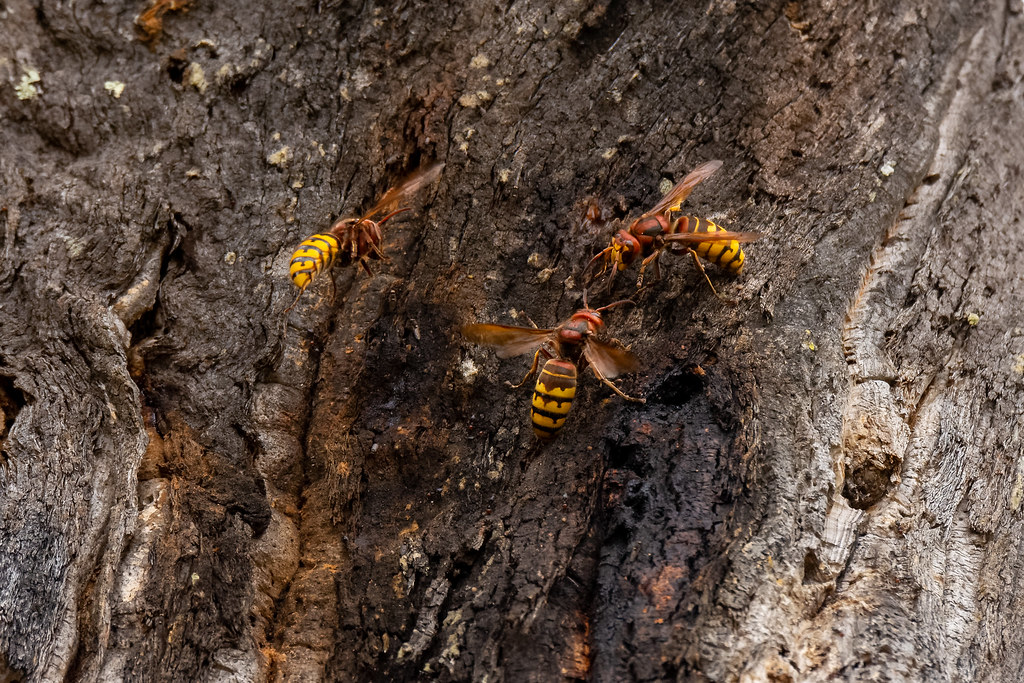One day every year, when the conditions are right, Winged Ants take to the air in order to create new colonies. Today, here all around the Quinta the skies became full of large flying Ants. There are many Ant species in Portugal, which these are I’m not certain (please get in touch if you know!).
Deep inside the Ant colonies, Winged species are breed and wait until its time for the Nuptial flight. Both Males and Virgin Queens take to the skies. The Queens release pheromones to entice males. Successful males mate with multiple Queens before dying, yep, their life is complete! The Queens, which now have their Spermatheca organ full of sperm, land back on the ground. They contain enough sperm to fertilise eggs for their entire lifetime, which I have read can be up to 20 years! On the ground, the (no longer) Virgin Queen has to find a new location to build her new colony and constantly lay eggs. They no longer have a use for the wings, so they tear them off and discard them. Fascinated by this I grabbed my Mobile Phone and recorded a few clips.
Here is the edit I put together to show this amazing transformation.
{Remember to watch in HD if possible}Continue reading >>
